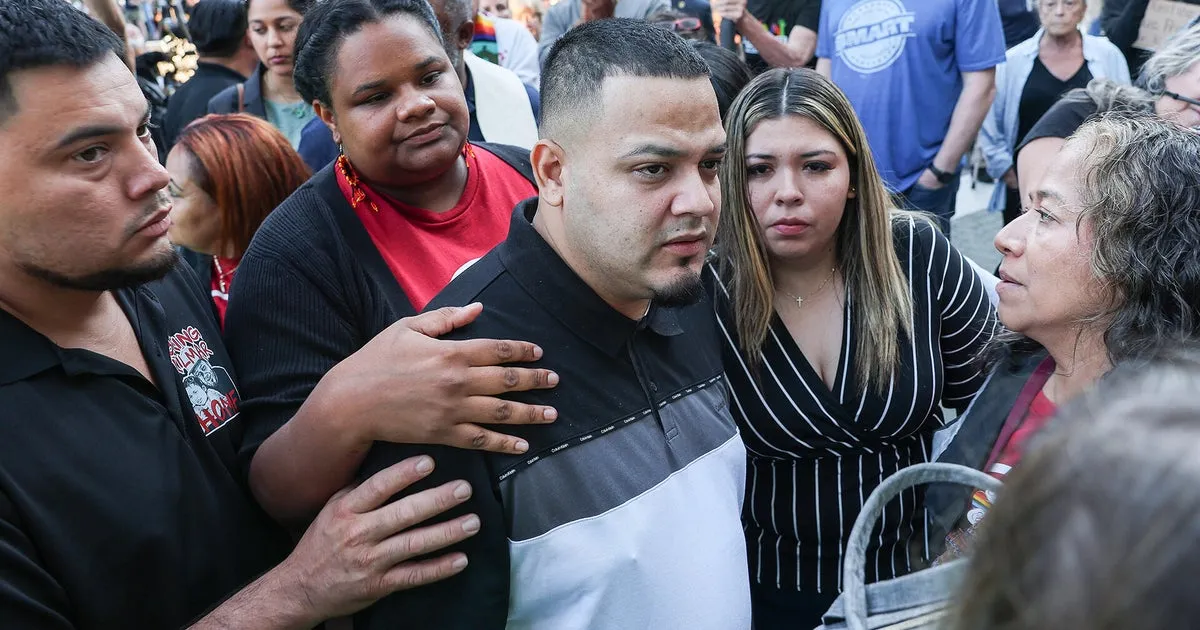
On Thursday, the legal team representing Kilmar Abrego Garcia filed a motion in federal court in Nashville, seeking to prevent top officials from the Trump administration—including Secretary of Homeland Security Kristi Noem and Attorney General Pam Bondi—from making what they describe as baseless public attacks against their client. Abrego Garcia was mistakenly deported to El Salvador earlier this year, and his lawyers argue that the ongoing public statements from federal officials violate his right to a fair trial.
This motion comes just days after Abrego Garcia was released from pre-trial custody, only to be detained again by Immigration and Customs Enforcement (ICE) shortly thereafter for potential deportation. Currently, Abrego Garcia remains in ICE custody, but a Maryland judge has issued a stay on his deportation while reviewing the details of the case.
Since last Friday, Abrego Garcia's lawyers have claimed that federal officials have made numerous inflammatory and false statements about him in the media, which they argue could severely compromise the integrity of his upcoming trial. They specifically pointed to a statement made by Noem, who labeled Abrego Garcia as an MS-13 gang member, a human trafficker, and a serial domestic abuser, among other accusations.
Abrego Garcia's legal team expressed grave concerns that the Department of Homeland Security (DHS) has engaged in a campaign of public vilification against him. They cited multiple inflammatory posts on the DHS's official social media accounts, including unsubstantiated claims linking him to the gang MS-13—a connection he has consistently denied.
The motion submitted by his lawyers underscores the potential impact of these prejudicial statements on the jury pool. They argue that if the government continues its public attacks, it will irreparably taint any potential jury, making it nearly impossible to conduct a fair trial. Furthermore, they indicated that such public scrutiny could deter potential defense witnesses from coming forward, fearing they too might face public backlash.
To counter these damaging public statements, Abrego Garcia's lawyers are seeking a court order that would require all officials from the Department of Justice (DOJ) and DHS involved in this case—particularly Noem and Bondi—to refrain from making comments that could prejudice the trial.
In a previous ruling, U.S. District Judge Waverly Crenshaw mandated that all attorneys involved in the case must adhere to local criminal court rules concerning public statements. This ruling followed arguments from Abrego Garcia's lawyers that the government had breached guidelines designed to protect the fairness of legal proceedings.
In response to the motion, a DHS official remarked that if Kilmar Abrego Garcia did not wish to be publicly criticized by the Secretary of Homeland Security, he should not have entered the United States illegally and committed serious crimes. They emphasized the need to focus on victims rather than what they termed the "false sob stories" of criminal illegal aliens.
The legal challenges for Abrego Garcia are significant. He is currently awaiting prosecution on allegations of transporting undocumented immigrants across the U.S.-Mexico border—charges he has denied. Additionally, he faces potential deportation to East Africa, specifically Uganda. Abrego Garcia, a native of El Salvador who entered the U.S. illegally in 2011, was previously arrested by ICE in March and deported despite a judge's ruling against his removal due to fears of gang violence.
Although federal officials have acknowledged that Abrego Garcia's deportation to El Salvador was an administrative error, they have continued to publicly criticize him. After spending months in prison in El Salvador, he was eventually flown back to Tennessee in June and charged with human smuggling. A judge ruled at that time that he could be released while awaiting trial, which is currently set for January.
Despite his release, Abrego Garcia was re-detained by ICE shortly thereafter, with his legal team being informed of a potential deportation to Uganda. However, U.S. District Judge Paula Xinis has ruled that he cannot be deported until at least early October, as she reviews a habeas corpus petition filed on his behalf. His legal team also plans to pursue asylum in the United States as part of their strategy.